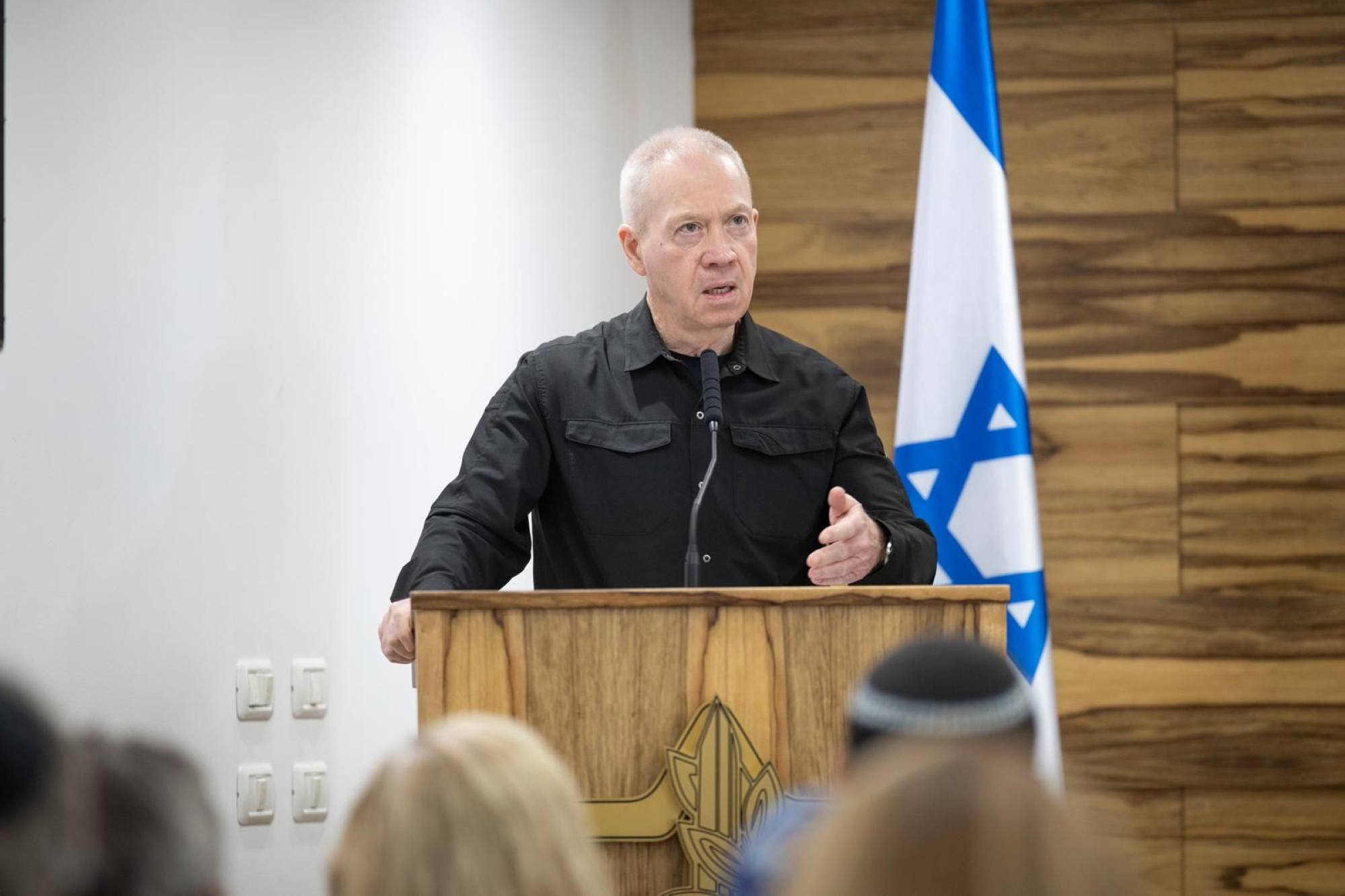Humanitarian groups warn of a catastrophe. Rafah is Gaza’s main entry point for aid. The US and other allies say Israel must avoid harming civilians.
Netanyahu has said he will convene the cabinet this week to approve operational plans that include the evacuation of civilians to elsewhere in Gaza.
“Once we begin the Rafah operation, the intense phase of the fighting is weeks away from completion. Not months,” Netanyahu told CBS. “If we don’t have a deal, we’ll do it anyway.” He said four of the six remaining Hamas battalions are concentrated in Rafah.
US national security adviser Jake Sullivan told NBC that US President Joe Biden had not been briefed on the Rafah plan. “We believe that this operation should not go forward until or unless we see [a plan to protect civilians],” Sullivan said.
Israel threatens Eurovision pull-out if song is vetoed as ‘too political’
Israel threatens Eurovision pull-out if song is vetoed as ‘too political’
Heavy fighting continued in parts of northern Gaza, the first target of the offensive, where the destruction is staggering.
“We’re trapped, unable to move because of the heavy bombardment,” said Gaza City resident Ayman Abu Awad.
He said starving residents have been forced to eat animal fodder and search for food in demolished buildings. In nearby Jabaliya, market vendor Um Ayad showed off a leafy weed that people pick from the harsh, dry soil and eat.
“We have to feed the children. They keep screaming they want food. We cannot find food. We don’t know what to do,” she said.
Philippe Lazzarini, commissioner general of the UN agency for Palestinians, said they have not been able to deliver food to northern Gaza since January 23, adding on X, formerly Twitter, that “our calls to send food aid have been denied”.
Israel said 245 trucks of aid entered Gaza on Sunday – less than half the amount that entered daily before the war.
Israel discusses next steps in truce talks as Gaza desperation deepens
Israel discusses next steps in truce talks as Gaza desperation deepens
The official, speaking on condition of anonymity to discuss the negotiations, said the proposed six-week pause in fighting would include allowing hundreds of trucks to bring desperately needed aid into Gaza every day, including the north. He said both sides agreed to continue negotiations during the pause for further releases and a permanent ceasefire.
It feels like Schindler’s list. Will he be on the list or not?
Hamas has said it will not release all of the remaining hostages until Israel ends its offensive and withdraws its forces from the territory, and is demanding the release of hundreds of Palestinian prisoners, including senior militants. Netanyahu has rejected those conditions.

“We will continue the fire and we will do so independently from the south,” he said while visiting the Northern Command.
Families have followed the negotiations with hope and anguish.
“It feels like Schindler’s list. Will he be on the list or not?” Shelly Shem Tov, the mother of Omer, 21, told Israeli Army Radio of his chances of being freed.
US opposes Israel ‘reoccupation’ of Gaza, shrinking of Palestinian territory
US opposes Israel ‘reoccupation’ of Gaza, shrinking of Palestinian territory
Israel’s air and ground offensive has driven around 80 per cent of Gaza’s population from their homes, putting hundreds of thousands at risk of starvation and the spread of disease. The Health Ministry in Hamas-ruled Gaza says 29,692 Palestinians have been killed in the war, two-thirds of them women and children.
The ministry’s death toll does not distinguish between civilians and combatants. Israel says its troops have killed more than 10,000 militants, without providing evidence.
The war has devastated Gaza’s health sector. Less than half of hospitals even partially function.
At the Emirates Hospital in Rafah, three to four newborns are placed in each of its 20 incubators, which are designed for just one.
Dr Amal Ismail said two to three newborns die in a single shift, in part because many families live in tents in rainy, cold weather. Before the war, one or two newborns in incubators there died per month.
“No matter how much we work with them, it is all wasted,” she said. “Health conditions in tents are very bad.”

